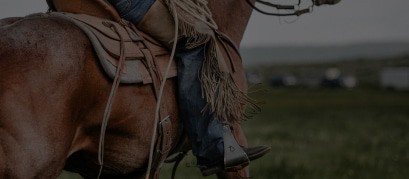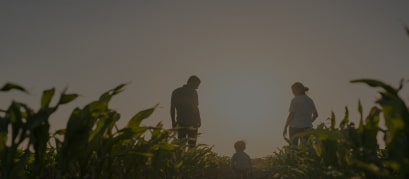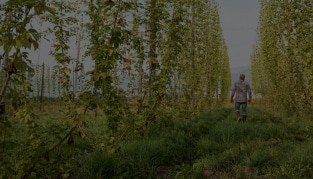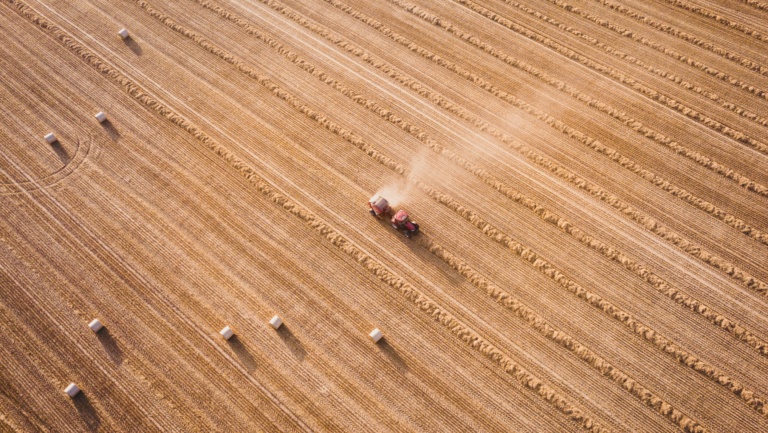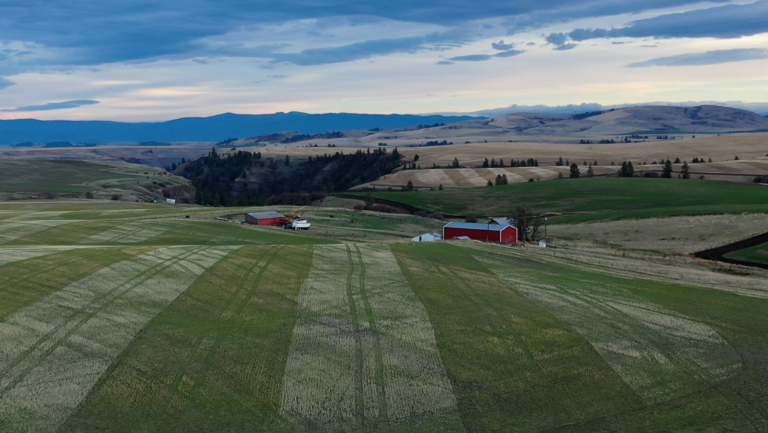Cultivating Great Farmers: Traits to Grow On
Wondering what makes great farmers tick? We’ve talked to experts in the field to zero in on those traits that define the best farmers
There are a lot of great farmers in the United States. You likely know at least a few, if not more. These great farmers are always succeeding, whether it’s with a new crop, a new concept or the latest pest in the field. We talked to an array of ag industry experts to pin down those traits that make a farmer “great.”
“When I observe the more successful operations, whether family or commercially run, the qualities of resilience, grit, adaptability, and determination certainly contribute to success and long-term sustainability,” observes Emily Rogers, a Business Consultant & Coach based in Lakeland, Florida. Find the traits you can start to grow in yourself to join the ranks of great farmers below.
Great Farmers are Open to Change
Rogers’ knows her share of farmers. Rogers’ roots in agriculture run deep—her great grandfather grew corn in Indiana, her grandfather was a Florida cattle rancher, and Rogers married a third generation citrus grower and cattle rancher. She knows firsthand what makes successful farmers tick.
Of the traits Rogers mentions, she believes adaptability is most important. After all, in farming there’s really only one thing you can count on and that’s change—be it with commodity prices or the weather forecast.
Interestingly, a 2015 Australian study found that 75% of farmers are “inclined to resist change or only change once there is a good reason to do so.” Rogers says that in farming, there’s always a good reason to change and to be agile and flexible in the face of change.
“To survive in such a volatile business, farmers must have the ability to adapt,” says Rogers. “Here in Florida, for example, citrus growers are dealing with greening, an incurable bacterial disease, which has devastated many groves and many livelihoods. Adaptable farmers, rather than giving up, are getting into other crops like blueberries and peaches. Is it tough to adapt? Absolutely. But operators with the ability to find their way through the darkness and emerge strong on the other side…those are the farmers that survive and thrive.”
Great Farmers Build a Team
Jolene Brown, a nationally recognized Family Business Consultant and Professional Speaker based in West Branch, Iowa, and a farmer herself, agrees that adaptability is key, but adds that especially in the midst of crisis, smart farmers are the ones that realize they can’t “go it alone.”
Brown works with farm families in flux, often on the brink of transitioning their operation, a time when resilience, adaptability—and working together as a team—are all especially crucial.
In other words, self-reliance is a good quality, until it becomes hardheadedness.
“I tell my clients a story about one rancher I worked with who said to me, ‘as long as you don’t change anything, I’m flexible’ and he was only half-joking,” shares Brown. “Sometimes farmers have to be reminded that they run a business and not to forget to get off the tractor and into the leader’s chair.”
And by “chair” Brown doesn’t mean “throne.” “You’ve got three options in running your operation,” says Brown. “Sure, if you want to be the king, just be sure to pay servants well. If you want to be the puppeteer, remember they can cut the string at any time. But ultimately, acting as a team leader is the way to be—with your whole group focused on shared goals. My advice is to be inter-dependent not independent. That requires good and regular team communication.”
Sharing with others and reaching out for help is often not in a farmer’s nature. After all, the trait of self-reliance is common—and prized—among ag people.
“The ones that reach out for help and share with others, for example by participating in associations and organizations, they’re the ones that succeed,” says Brown. “This is not about chatting with your neighbors about how to best fix a tractor, this is about exchanging ideas in peer advisory groups.”
Identifying Your Work Style
So do you possess the personality traits needed for a successful future in farming…or is something holding you back? Is there room for change?
With adaptability at the top of her favored trait list, Rogers says it’s also important to recognize which “type” of operator you are. She suggests that people can be (loosely) categorized as traditionalists, bridge-builders, or leapers.
“Traditionalists hold onto what has worked in the past, they are the most resistant to change,” says Rogers. “Bridge builders can see a new path and might be interested in taking it, but they need to study the situation to get to the other side. Leapers are the risk-takers, they love change, so when they see a new idea, they just go for it.”
“Ag people often fall into the traditionalist camp,” observes Rogers. “They’re a pretty conservative bunch when it comes to change. But the good news is, if they’re willing to reach out to others (i.e. bring their team and peer group into the discussion) that outside perspective can help them see the bridges to build and give them the impetus to take an informed leap.”
Leaving Emotion At The Door
In a 2013 article, Illinois banker, Bob Boesdorfer, said he believes that successful farmers “are able to take emotion out the equation when it comes to decision-making.” In other words, “they don’t fall in love with any certain asset on their farm, be it land, equipment, or livestock. They leverage this way of thinking as a business tool that can make their operation more successful.”
Boesdorfer added that, when there’s a failure it’s important take emotion out of the equation and just assess why. What went wrong, what can be fixed, what needs to be left behind…how might that look…how do we get everyone on board?
Easier said than done, of course, especially when you’re a fourth generation farmer. But Boesdorfer wasn’t saying you shouldn’t care deeply for your land or what you’ve accomplished with it. He was saying it pays to know yourself well enough to find that objectivity when you need it.
Boesdorfer also noted that, “If it becomes clear that an asset is detracting rather than creating value, successful farmers are able to set it aside and focus more attention on other parts of their operation or sell the asset.”
Or let that asset go, in the case of an unproductive person, if that’s what it takes. Brown tackles difficult people problems regularly with her clients, and often it’s between blood relations.
“Just because someone is a family member, doesn’t automatically mean farming is the right career choice,” says Brown. “Being invited into a business is not a birthright or entitlement. In the case of transitioning a farm business for example, the next generation has to earn the right to take over.”
But Brown also notes that there are paths to resolution that don’t always involve removing someone from the business.
“Being a leader not only means being resilient and adaptable,” says Brown, “it means understanding how to make the most of the people you have chosen to work with and bringing out the best in them.”
Brown says that begins with understanding how YOU work…and then learning how to work with others—especially the difficult ones. She highly suggests participating in leadership programs or taking human resources classes.
“On a farm, as in any business, there’s room…and a need…for all types of personalities,” points out Brown. “The decision-maker, the driver, the quiet process thinker, the devil’s advocate…they all have strengths and shortcomings. Under a good leader, that team can work together for a common goal and shared success. The key is for the leader to model the outcome they want from everybody else.”
Growing To Succeed
Whatever your age, whatever your situation, you owe it to yourself, your employees, your family, and the future of your operation, to grow as a leader.
The experts, like Rogers and Brown, are there to help. Your Farm Bureau, local Extension services and other associations are there to listen and to teach. But the first step begins with you, and it might be one that takes you out of your comfort zone.
“The qualities that make farmers so unique are exactly the ones that have served them so well over the generations,” says Rogers. “From that perspective I can completely see why farmers may feel there’s no reason to change. But when you summon the courage to step out of a comfort zone that’s no longer serving you for whatever reason…when you allow yourself to be open to exploring new possibilities from new points of view…that’s when you discover the best opportunities to grow the most as an individual…and help your operation grow as well.”
With that thought in mind, here’s to becoming more resilient, adaptable, and team-oriented. Your farm will thrive because of it.
As the country’s premier ag lender, AgAmerica supports the country’s growers and producers. We help the nation’s great farmers grow and succeed using our low interest rates, long amortizations, and an outstanding 10-year line of credit.
